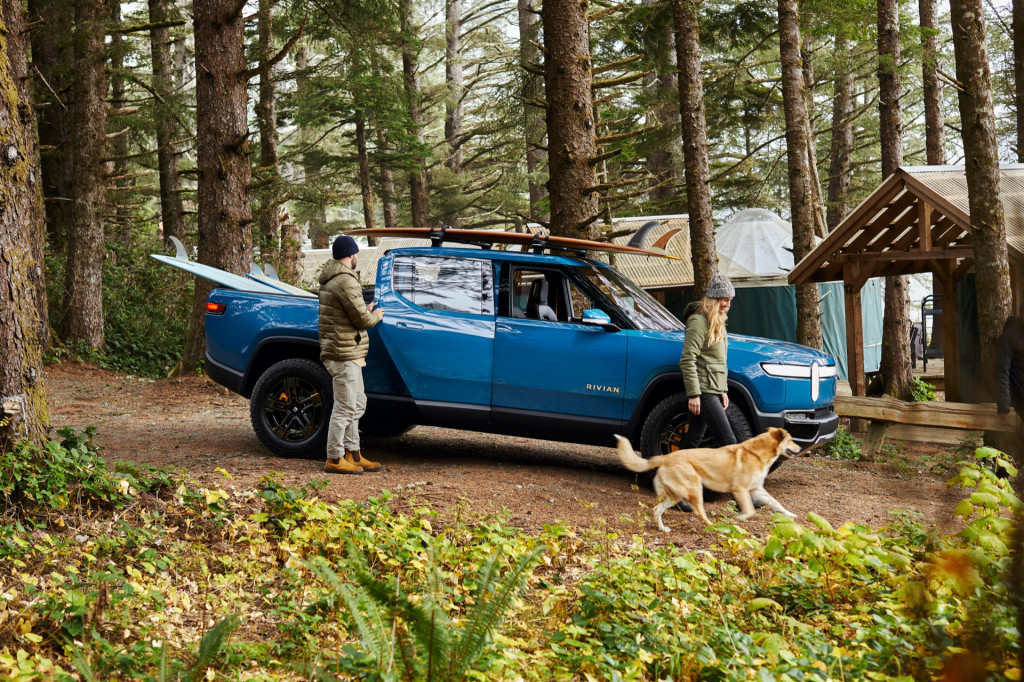Rivian has begun work on its own charging network, with a "two-tier" strategy that will include DC fast charging and slower AC charging, CEO RJ Scaringe said in an interview with TechCrunch.
Unlike previous charging-network projects, Rivian will locate stations near hiking trails, kayaking spots, and other recreational destinations, in order to match the outdoorsy marketing angle of its first vehicles—the R1T pickup truck and R1S SUV.
The network will include both fast-charging stations along interstates and "destination chargers" at locations where speed isn't as important, according to TechCrunch. That has created a "really interesting and challenging real estate" issue as the company looks for the best spots for charging stations, Scaringe said.
Indeed, Electrify America has said that locating charging stations is as much a real-estate issue as anything else. Just finding locations with grid access, and enough space for charging hardware and parking, can be difficult.
Other automakers have chosen to rely on Electrify America and other third-party charging networks, and while Rivian owners might rely on those, too, Scaringe said Rivian wanted complete control of its network and the customer experience.

Rivian R1T
Rivian DC fast-charging stations will be able to add 140 miles of range in about 20 minutes, Scaringe said, adding that the company will deploy charging stations for both consumer and fleet use.
Rivian uses the Combined Charging Standard (CCS), so it could theoretically open its fast-charging stations to electric cars from other manufacturers, TechCrunch noted.
Earlier on, it could be argued that Tesla was creating a "moat" with its proprietary Supercharger network. Rivian might be able to create a parallel for those who aim to get out and enjoy the outdoors in more isolated regions.
Rivian previously confirmed that it will offer other solutions aimed at getting to remote destinations—like auxiliary batteries and truck-to-truck charging.
Jeep, meanwhile, has said that it plans to build solar-powered chargers near popular off-roading destinations, although those will be slower Level 2 AC units.
